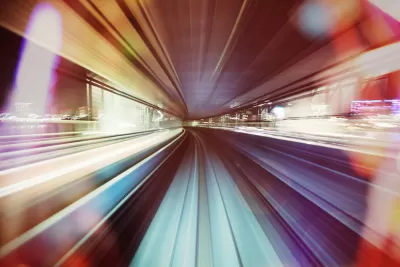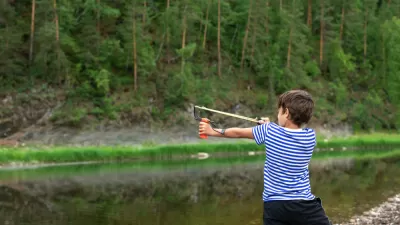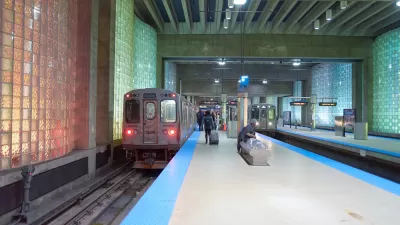Elon Musk's desire to tunnel a path to freedom from congestion refuses to die.

Many people noticed last week when Elon Musk took to Twitter to announce a momentous occasion for The Boring Company and The Hyperloop—those fanciful and futuristic ideas for super fast transportation that will forever solve the world's congestion, or at least Musk's commute through Los Angeles.
The momentous occasion: receiving "verbal govt approval" for an "underground NY-Phil-Balt-DC Hyperloop."
Just received verbal govt approval for The Boring Company to build an underground NY-Phil-Balt-DC Hyperloop. NY-DC in 29 mins.
— Elon Musk (@elonmusk) July 20, 2017
Apparently some unnamed bureaucrat in some unnamed branch of some unnamed government didn't get the memo about all the reasons to be skeptical about The Boring Company. Nor did this granter-of-verbal-approvals get the memo about the reasons to be skeptical about the Hyperloop.
Aarian Marshall plays the roll of reality checker this time around, saying what many were thinking: "'verbal government approval' isn’t a thing." Marshall then explains what exactly it takes to build "a gigantic, multi-billion dollar, multi-state infrastructure projects in the United States of America." That is "Something nearing an act of God."
Laura Bill also gathered a list of reasons to be wary of Elon Musk's East Coast Hyperloop tunnel idea—five reasons, in total.
FULL STORY: OH, ELON. BUILDING INFRASTRUCTURE FOR THE HYPERLOOP DOESN'T WORK LIKE THAT

Trump Administration Could Effectively End Housing Voucher Program
Federal officials are eyeing major cuts to the Section 8 program that helps millions of low-income households pay rent.

Planetizen Federal Action Tracker
A weekly monitor of how Trump’s orders and actions are impacting planners and planning in America.

The 120 Year Old Tiny Home Villages That Sheltered San Francisco’s Earthquake Refugees
More than a century ago, San Francisco mobilized to house thousands of residents displaced by the 1906 earthquake. Could their strategy offer a model for the present?

Austin Launches $2M Homelessness Prevention Fund
A new grant program from the city’s Homeless Strategy Office will fund rental assistance and supportive services.

Alabama School Forestry Initiative Brings Trees to Schoolyards
Trees can improve physical and mental health for students and commnity members.

NYC Outdoor Dining Could Get a Re-Do
The city council is considering making the al fresco dining program year-round to address cost concerns from small businesses.
Urban Design for Planners 1: Software Tools
This six-course series explores essential urban design concepts using open source software and equips planners with the tools they need to participate fully in the urban design process.
Planning for Universal Design
Learn the tools for implementing Universal Design in planning regulations.
Ada County Highway District
Clanton & Associates, Inc.
Jessamine County Fiscal Court
Institute for Housing and Urban Development Studies (IHS)
City of Grandview
Harvard GSD Executive Education
Toledo-Lucas County Plan Commissions
Salt Lake City
NYU Wagner Graduate School of Public Service





























